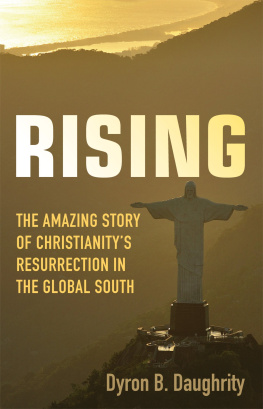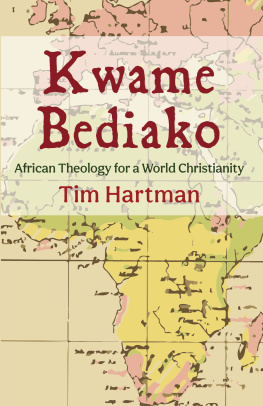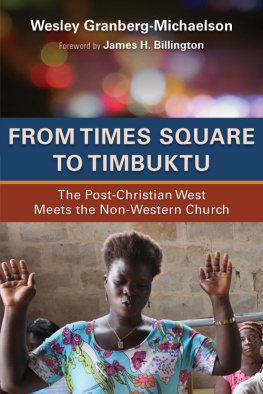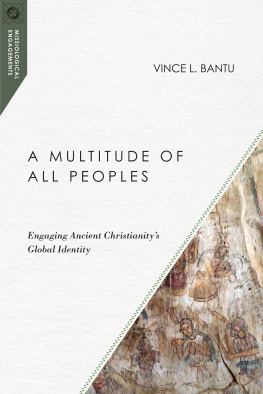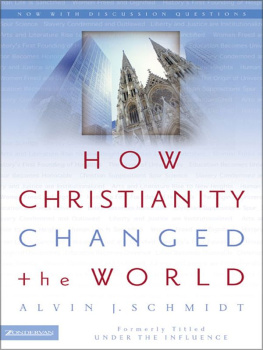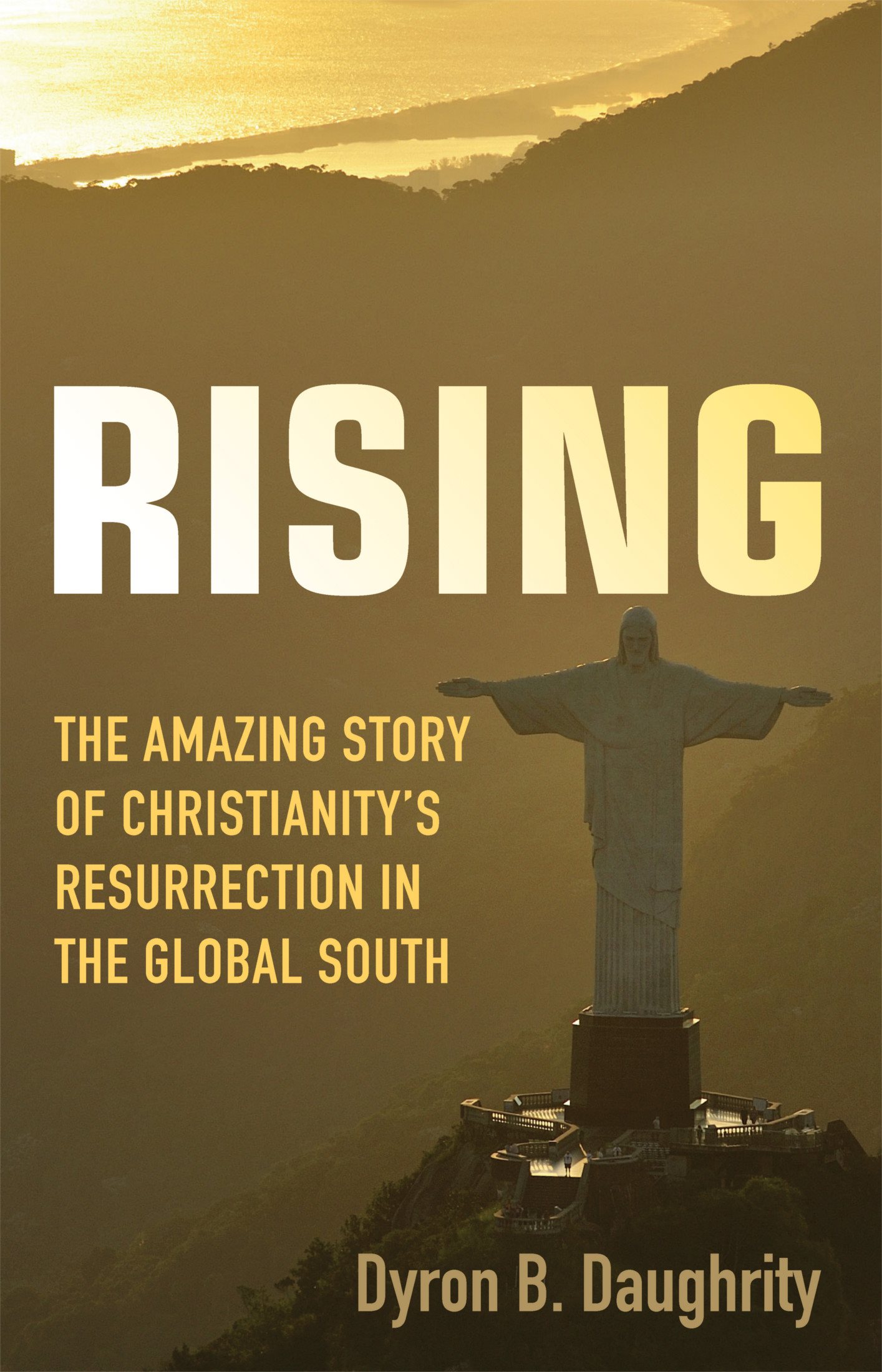Rising
The Amazing Story of Christianity's Resurrection in the Global South
Dyron B. Daughrity
Fortress Press
Minneapolis
RISING
The Amazing Story of Christianitys Resurrection in the Global South
Copyright 2018 Fortress Press. All rights reserved. Except for brief quotations in critical articles or reviews, no part of this book may be reproduced in any manner without prior written permission from the publisher. Email copyright@1517.media or write to Permissions, Fortress Press, PO Box 1209, Minneapolis, MN 55440-1209.
Cover image: T photography/Shutterstock
Cover design: Brad Norr
Print ISBN: 978-1-5064-2182-7
eBook ISBN: 978-1-5064-4794-0
The paper used in this publication meets the minimum requirements of American National Standard for Information Sciences Permanence of Paper for Printed Library Materials, ANSI Z329.48-1984.
Manufactured in the U.S.A.
This book is dedicated to the missionaries, martyrs, converts, and countless others who preserved the Christian faith despite many difficulties and at times severe persecution. Due to their resilience and tenacity, Christianity is rising.
With profound respect, the author of this volume would like to pay special tribute to the Christians of China and Russia during the twentieth century, especially those who presented the ultimate sacrifice to their Lord and Savior Jesus Christ.
Contents
First, I must acknowledge the excellent editorial work of Lisa Kloskin at Fortress Press. It was my privilege to be chosen by her to write for Fortress Press, and she worked most efficiently to keep the book on track. Thank you, Lisa. It is a pleasure to work with you.
I extend a sincere thanks to my colleagues at Pepperdine. They continue to offer me encouragement at every turn. A special word of thanks goes to professors Tim Willis and Dan Rodriguez for their salutary leadership in our division.
I acknowledge my wonderful students, especially those with whom I have worked personally. I must single out my graduate assistant Mike Gaston for helping me with various tasks as I worked on this book.
I gratefully acknowledge the loving support of my wife, Sunde, and our four children: Clare Soleil, Ross Dyron, Mande Mae, and Holly Joy. It was a difficult year in many ways, especially after my facial injury and surgery. You have been gracious and patient as we packed up in preparation for our move to Italy. Thank you for your unfailing love and unconditional acceptance.
I am also most grateful to my loving parents, May Dell and Jerald Daughrity. It was such a blessing to celebrate your fiftieth wedding anniversary with you on 8 August 2017.
And finally, as always, I humbly acknowledge Jesus Christ, my Lord:
Now unto him that is able to do exceeding abundantly above all that we ask or think, according to the power that worketh in us, Unto him be glory in the church by Christ Jesus throughout all ages, world without end. Amen. (Ephesians 3:2021 KJV)
Dyron B. Daughrity
Florence, Italy
15 September 2017
Port Dickson, Malaysia, is an odd place for someone to begin their lifes work. I had gone there in 2004 to attend a conference on world missions. Between sessions, we were taken on a little outing to an old Christian cemetery. While walking around, looking at the graves of British and Canadian missionaries, it hit home that these individuals gave their lives for something greater than themselves. They came way out here to this little coastal town to bring the gospel. And now their remains were completely abandoned and alone, ignored by everyone, except for perhaps those engaged in a world missions conference.
I wondered how these individuals felt, moving their families way out here to a peninsula extending out from Southeast Asia. What motivated them to do something so radical? Their journey took place before air travel. It would have taken them months to get here by ship.
History shows that most missionaries accomplished little when measured by the number of people they converted to Christianity. Many of them died shortly after their arrival because of their lack of immunity to new bacteria and viruses, especially in tropical environments. In the mission field, young children and mothers giving birth were especially vulnerable.
I stood in that cemetery wondering why these missionaries gave everything to bring the gospel to people they knew nothing about. Their dedication was obvious, but what motivated them? And where can this level of commitment possibly be found today?
As I was deep in thought, somebody tapped me on the shoulder. Are you Dyron Daughrity? Yes. Handing me a cell phone, he said, Here, your mother and your wife would like to talk with you.
That was strange. Here I was, thirty-one years old, on the other side of the world, walking around in a remote cemetery, and a stranger comes up and hands me a cell phone with my mom and wife on the other line for a three-way call. (By the way, cell phones were not yet common.)
During that brief conversation I learned that my wife and mother were terrified about my whereabouts. I had forgotten to email them upon my arrival. And when they contacted the hotel, a clerical error showed that I had not yet arrived. I put them at ease, assuring them I was fine. I handed the phone back to the man, who explained he was from the U.S. embassy and had been sent specifically to find me. I thanked him.
But when the embassy official walked off, I realized that kind of thing would never have happened in the early days of Christian missions. When those people boarded a ship in Liverpool or Halifax, there was no turning back. They brought with them a few boxes, and they were gone, usually for the rest of their lives. When they walked out onto those ships and waved goodbye to their friends and loved ones, they knew they were cutting ties. In many cases, that was the last glimpse they would ever catch of their homeland and their people.
Some might question whether their journey to the other side of the world to spread the gospel was even worth it. You had a good chance of dying at sea. If you made it to your destination you probably died within the first few years. You were certainly lonely, almost completely cut off from your own culture. There was no bank machine from which to draw money. You had to find a way to make a living unless you had managed to raise some support from back home. And support came perhaps once or twice a year in the form of a few letters and some cash to stock up on supplies. Of course, when the letters finally arrived they were already six months old.
Similar scenes played out all over the world: West Africa, South Africa, East Africa, South India, Burma, Southeast Asia, across the vast expanse of China, the Pacific Islands, Patagonia, the Caribbean. Missionaries boarded ships with a few boxes and made their long journey to the far reaches of the world, at a time when those places were virtually unknown.
And there I was, many years later, thinking about those missionaries who were buried by their families in graves now dilapidated and nearly forgotten.
Why did they do it?
They did it because they believed in the gospel. And when they planted their Christian faith in all parts of the world, they probably never knew what would happen, or how magnificently it would grow.

